 Back to Learn page
Back to Learn page

What Are Dark Pools? How Can They Benefit Individual Investors?
Things that start with the word “dark” tend to have a bad reputation — the Dark Lord Voldemort from the Harry Potter franchise, the Dark Side from Star Wars, etc. — so it’s not too surprising that when individual investors learn about the existence of “dark pools” in the financial system, their skin begins to crawl.
I get it. No one bothers to break down their value to the average investor, and honestly, it feels like they weren't even designed to benefit individual investors. But like everything else, there's a fair amount of nuance when it comes to dark pools.
Dark pools — also referred to as Alternative Trading Systems or ATS — are private, off-exchange trading venues that allow investors to trade securities anonymously. This is why they’re called “dark” pools. Because they are private and anonymous, they offer different benefits compared to trading on a public “lit” stock exchange.
By creating those private trading venues, dark pools can also help provide better prices than what’s publicly available.
This is one of the reasons they’re used by institutional investors. Dark pools are great for handling large blocks of stock without moving the prices. That might not seem like a big deal for the individual investor, as most of these orders tend to be smaller ones, but for the large institutional investors who are trading massive orders, it's a total game-changer, saving a significant amount of money when executing trades.
A private trading venue that primarily benefits institutional investors? That doesn’t seem fair. However, I want to argue that dark pools can benefit individual investors too.
What goes on in the dark pool
Dark pools obtain liquidity and generate profits through a similar mechanism to that of a consignment store, bringing together buyers and sellers. They attract orders by offering more favorable prices to both buyers and sellers compared to what’s available on public markets. This means that they can help buyers buy at a discount while helping sellers sell at a premium, allowing participants to save on transaction costs. Dark pools charge a small fee for facilitating these transactions, enabling them to generate revenue while providing a valuable service to market participants.
There is no guarantee that a dark pool will always have both a buyer and seller of a security at the same time. If not, no harm done as their anonymity means that no one knows these traders are in the market.
But if they do connect a buyer and seller, dark pools can bring some serious price improvement, especially when you execute your order in the middle of the bid-ask spread, which is the difference between how much a buyer is paying for a stock and how much a seller is getting when they sell. Closing this gap means saving money for both the buyer and the seller, it's a win-win for everyone. Just a few pennies saved here and there across multiple orders can really stack up over time.
That’s why I think it’s important for individual investors to have access to dark pools too, not just the large institutional players.
Fennel’s Private Trading Room
Fennel decided to bring access to dark pools to individual investors by setting up its very own private trading venue. Fennel has created a space within a third party's dark pool where it can determine who gets access and set certain criteria, such as mid-point only execution, counterparty disclosure, and execution quality monitoring.
Think about it as a private room where Fennel gets to be the security guard — we call it the Fennel Private Trading Room.
Within Fennel’s Private Trading Room, liquidity providers (such as market makers) who have met the criteria to participate, compete directly with other liquidity providers to execute your order. To ensure an execution against your order, a more aggressive pricing (and therefore more beneficial pricing for the individual investors) is needed. This competition is geared to provide Fennel’s clients with significant savings when executing their trades, while providing Fennel with additional venues to look for better prices for your order before going to the public markets.
There are several benefits of this setup. There’s anonymity for individual investors due to the private nature of dark pools. Fennel also seeks to find better prices than what’s on the public market when available. And since Fennel set up the criteria for the Private Trading Room, we are the gatekeepers of the parties who interact with your orders. Our goal is to ensure that the liquidity providers have our clients’ best interests in mind, and if they can’t keep up with the required benchmarks when providing executions, we can revoke their access.
Of course, not every retail brokerage has to create their own private trading venue to bring the benefits of dark pools to retail investors. But as I mentioned in my Hidden Costs of Trading blog post, the more trading venues your order has access to, the greater the ability for price discovery — and potentially lower costs for you. If your brokerage doesn't have access to multiple places to send your orders, including dark pools, there’s a chance you're gonna end up paying more.
∙ ∙ ∙
Michael Capelli is the CEO of Fennel Financials
∙ ∙ ∙
The views expressed are those of the author at the time of writing, are not necessarily those of the firm as a whole and may be subject to change. The information contained in this advertisement is for informational purposes and should not be regarded as an offer to sell or a solicitation of an offer to buy any. It does not constitute a recommendation or consider the particular investment objectives, financial conditions, or needs of specific investors. Investing involves risk, including the loss of principal. Past performance is not indicative or a guarantee of future performance. We do not provide tax, accounting, or legal advice to our clients, and all investors are advised to consult with their tax, accounting, or legal advisers regarding any potential investment. The information and any opinions contained in this advertisement have been obtained from sources that we consider reliable, but we do not represent such information and opinions are accurate or complete, and thus should not be relied upon as such. This is particularly true during periods of rapidly changing market conditions. Securities offered through Fennel Financials, LLC. Member FINRA SIPC.

Expand your knowledge further

A year ago, we started building an investing app to bring power back to the stakeholders.

20 months ago I had a simple idea: What if capital markets could change?

The name "Fennel" is inspired by the ancient Greek myth of Prometheus.
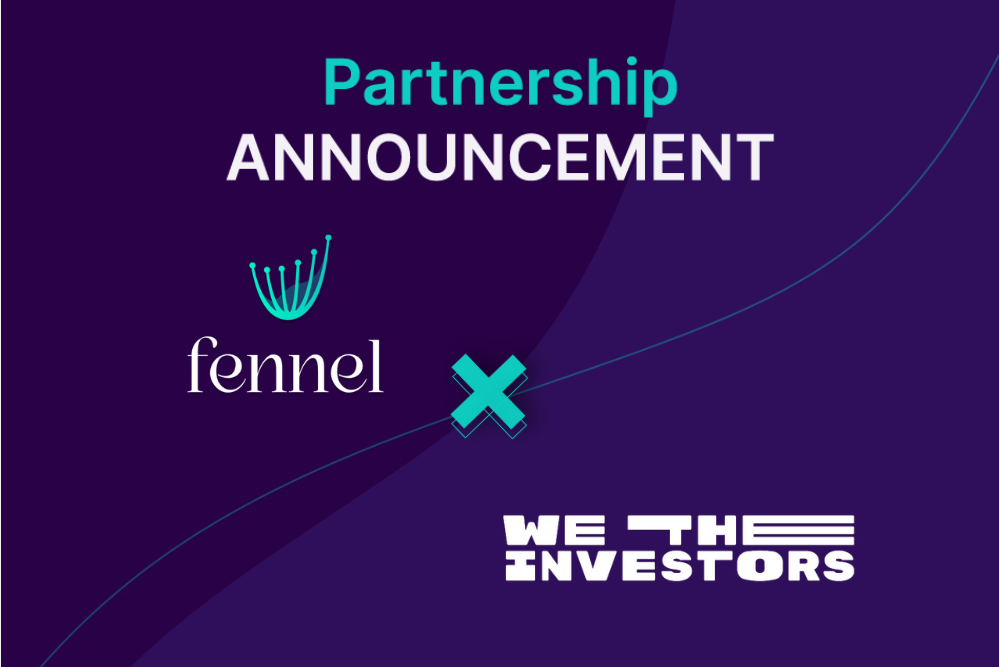
Fennel is joining forces with We The Investors to provide engaging educational content to help retail investors learn more about capital markets.
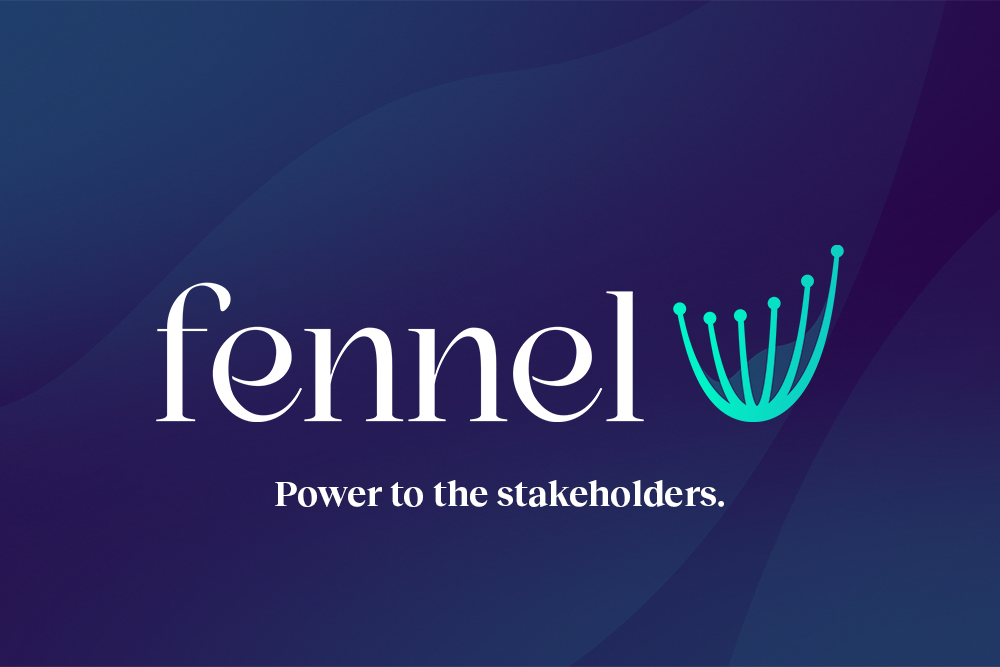
Backed by Jeff Cruttenden, founder of Acorns, Capital Factory, Temerity Capital Partners and more, Fennel has raised over $5M in funding to provide transparent financial and ESG-data to investors.
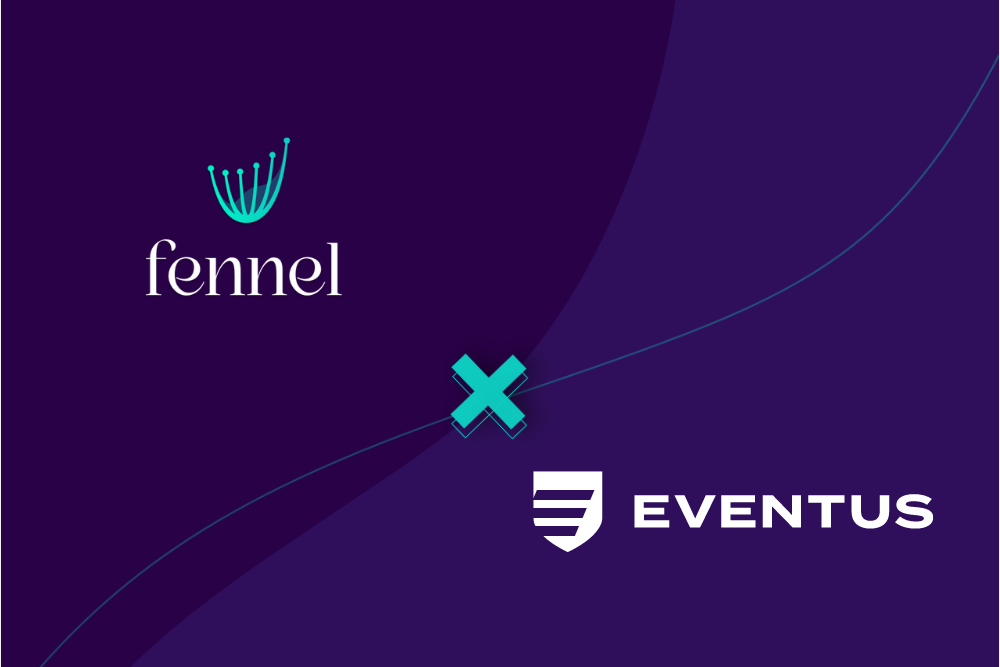
Fennel Financials joins forces with Eventus.

Fennel has been named to Fast Company’s prestigious list of the World’s Most Innovative Companies for 2023, joining a list of businesses paving the way in innovation and highlighting those at the forefront of their respective industries.
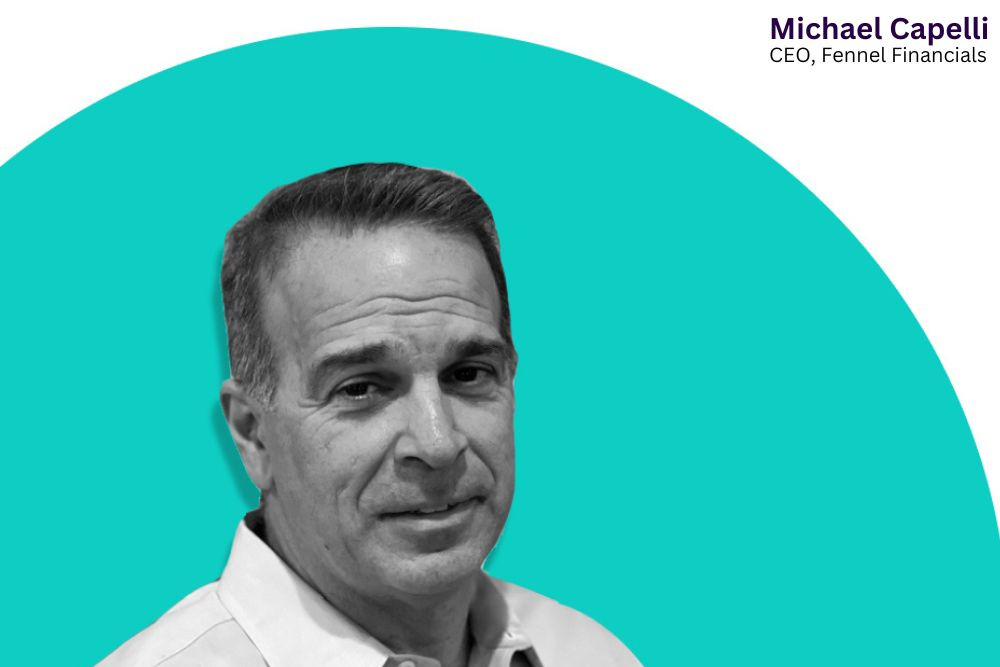
The ESG-focused retail investing platform hires Michael Capelli to lead its brokerage operations

Zero commissions doesn't mean zero costs.
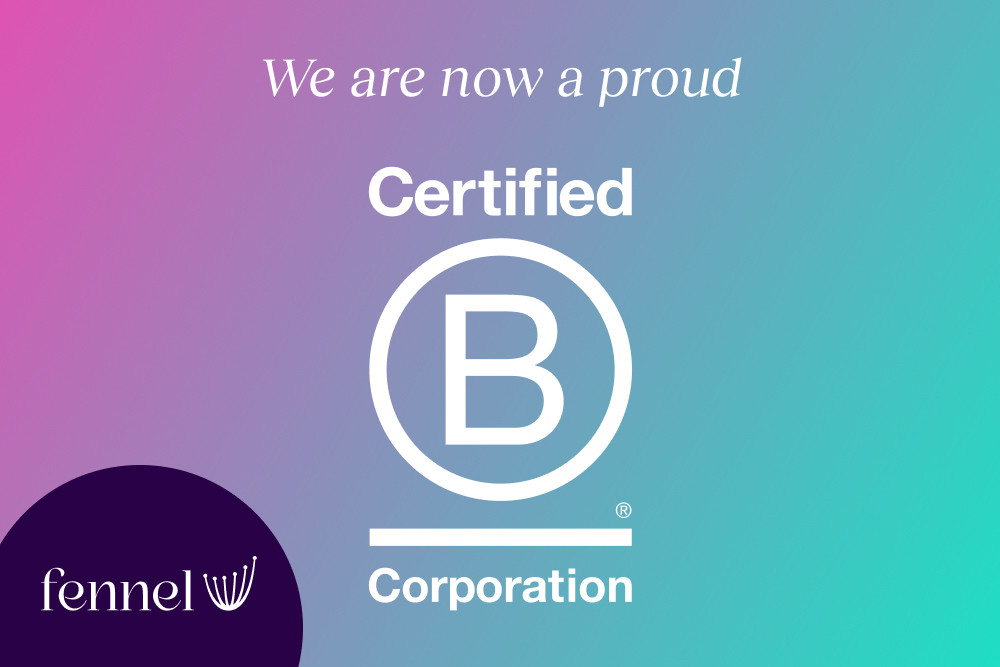
ESG & shareholder voting-focused brokerage becomes Certified B Corporation™, highlighting commitment to sustainable and regenerative economy.
Take back the power of your investment
